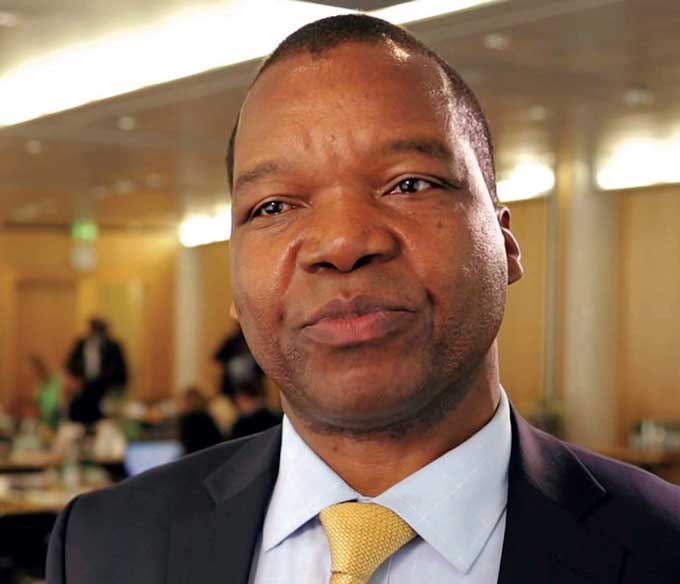
BY TATIRA ZWINOIRA ZIMBABWE’S largest business group has warned that the economy faces collapse if the government insists on foisting the rapidly weakening local currency on the market when it is obvious that it is no longer viable.
The Confederation of Zimbabwe Industries (CZI), which groups some of the country’s biggest companies, upped the ante yesterday, has warned that the Zimdollar was on the “brink of rejection in the face of exchange instability and increasing inflation.”
In its position paper on the sensitive issue leaked to the media on Friday, CZI called on the Reserve Bank of Zimbabwe (RBZ) to suspend the foreign currency auction system after the Zimdollar fell to $350 against the reenback against the official rate of $155.
The suggestion seems to have angered RBZ governor John Mangudya, who issued a terse statement that the auction system would remain because suspending it would cause shortages of goods on the market and abet inflation.
Read more
- Currency: The long road of pain awaiting Zim
- ED dodges dying Zimdollar
- Time to address the weakening Zimdollar or risk deeper poverty
- People have lost confidence in Zimdollar: Minister
- Zimdollar: The writing is on the wall
- Govt at the forefront of undermining the Zimdollar
- ‘Zim on verge of redollarisation’
However, CZI president Kurai Matsheza yesterday told NewsDay that there was need for a compromise.
“I think the route of discussion and engagement should be open and we all are really positive that these engagements will take us forward. I don’t think authorities will not listen to us. They may have a position, but I am sure that position can be debated and common ground can be found,” he said.
“I am sure they will listen to what we have highlighted in that paper and they will engage. We are not saying that they can adopt 100% of the recommendations, some of them can be picked, but I am sure that common ground can be found.”
- Chamisa under fire over US$120K donation
- Mavhunga puts DeMbare into Chibuku quarterfinals
- Pension funds bet on Cabora Bassa oilfields
- Councils defy govt fire tender directive
Keep Reading
Should the status quo remain, Matsheza said: “I am sure some will have difficulty to continue operating, it is going to be difficult. But, look, the situation has been difficult for the Zimbabwean operating environment and I am sure some may actually find it difficult to continue.”
CZI was adamant in its position paper that getting the price of foreign currency right was fundamental to Zimbabwe’s economic development.
“An overvalued Zimdollar broadly undermines the scope for maximising structural efficiency and the growth of both the export industry and import substitution,” it said.
“The policy of maintaining an overvalued Zimdollar imposes a big tax on the export industry undermining its growth and transparency. The policy also unwittingly subsidises imported industrial goods that then start competing unfairly for supermarket space with locally manufactured goods and accelerates deindustrialisation.”
CZI also suggested that foreign currency retentions be financed through the budget and that banks encourage exporters to freely set reserve prices and sell their foreign currency on the auction system.
The group also suggested that the central bank should do away with the foreign currency priority list and liberalise the market, while also keeping tight control on money supply.
It also called for RBZ to suspend quasi-fiscal activities which increase money supply growth and create market distortions or arbitrage opportunities.
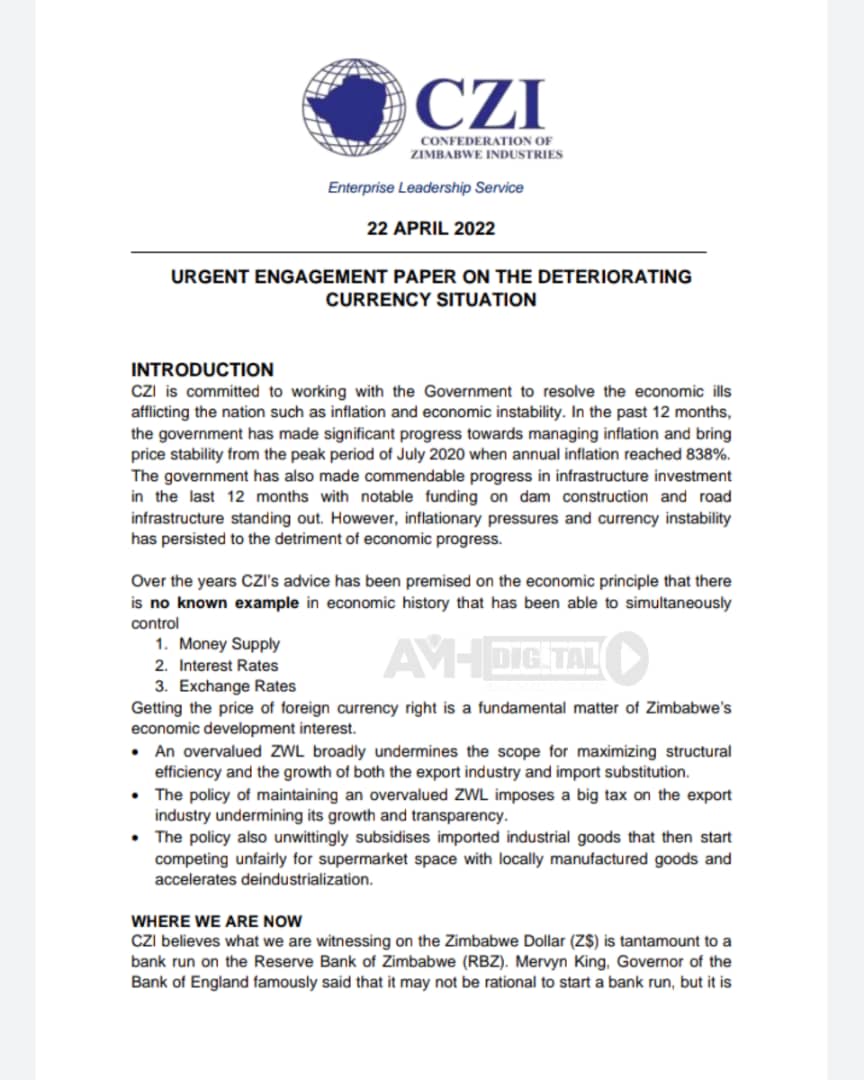
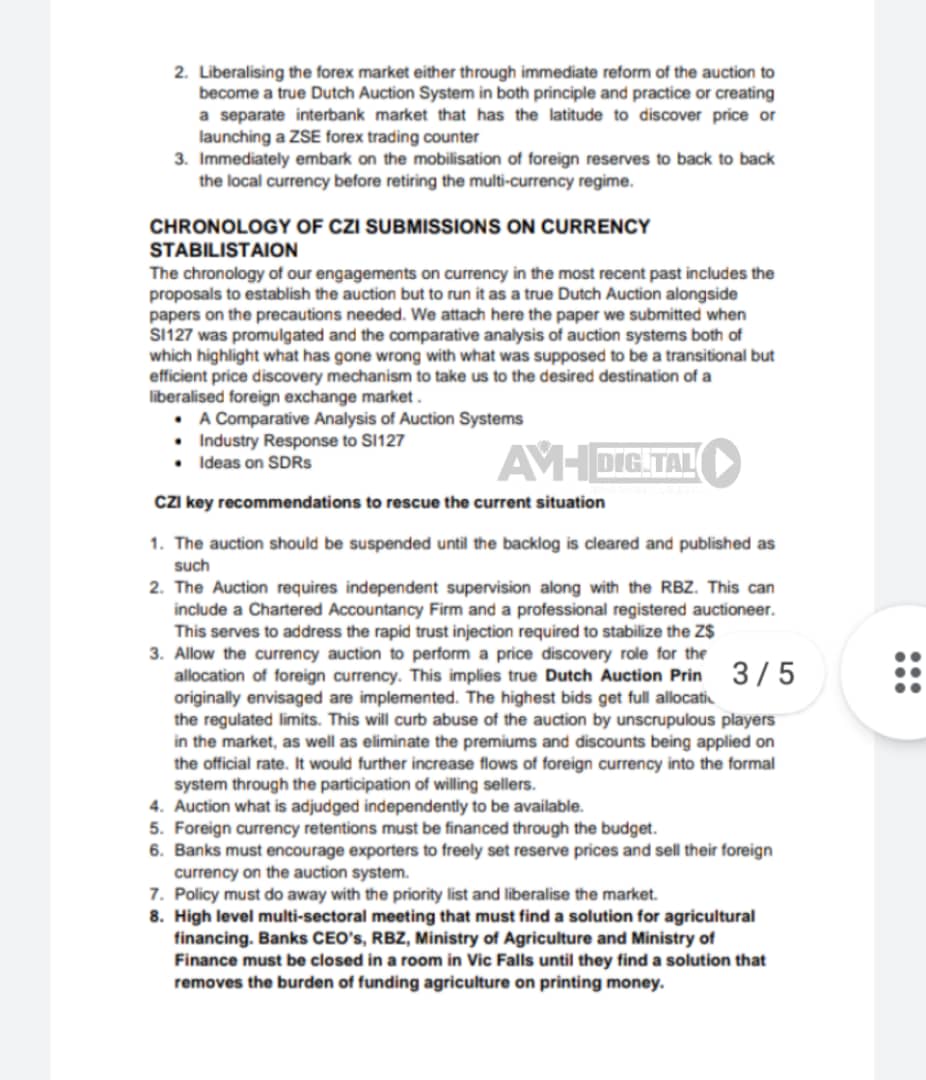
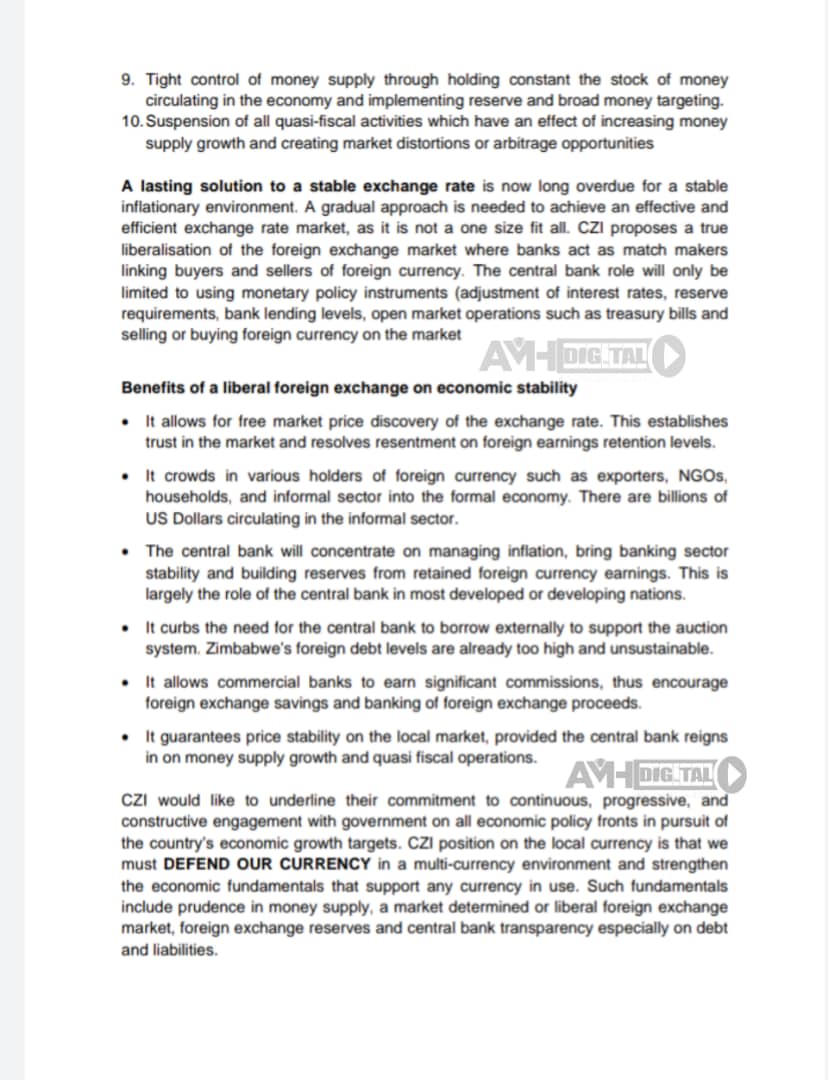
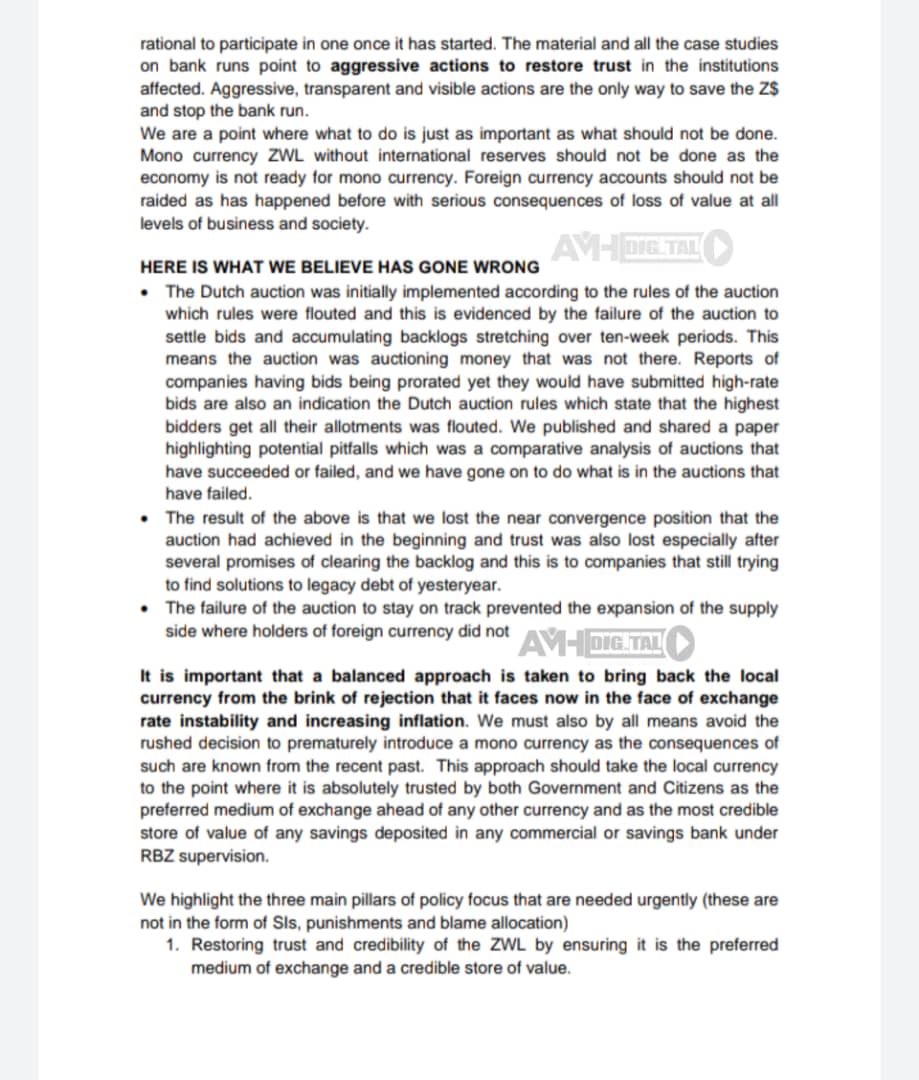
Mangudya responded: “Government and the bank (RBZ) are committed to an orderly de-dollarisation process and, hence, it is false that a mono-currency system is now in place. The foreign exchange auction system remains in place and will not be suspended as doing so will cause shortages of goods on the market and abet inflation. All foreign exchange accounts are safe and the bank has no reason or appetite to ‘raid’ the accounts as alleged in the CZI paper.”
Response to CZI Paper on Currency Situation pic.twitter.com/0dAlnccQa7
— Reserve Bank of Zimbabwe (@ReserveBankZIM) April 23, 2022
As a result of the Zimdollar depreciation and rising inflation, prices are soaring almost daily as businesses trying to maintain the value of goods and services.
The annual inflation rate, in particular, reached 72,7% as of last month.
Renowned American economist, Steve Hanke, gave the country the highest inflation rate in the world at the start of last week.
“I measure Zim’s inflation every day with PPP and high-frequency data. At 189%/yr, it has surpassed Venezuela and soared to the top of my #WeeklyWatchlist. According to my precise measurements, Zim is now the not-so-proud owner of the highest annual inflation in the world,” he wrote in a tweet dated April 17.
In a tweet on Friday, Hanke said Zimbabwe’s annual inflation rate was now at 207%.
“Zimbabwe’s government is so crooked that its own anti-corruption commissioner was fired for being corrupt. This story is ironic with a capital ‘I’. Speaking of ‘I’, consider inflation. In Zimbabwe, inflation no laughing matter. Today, I measure Zimbabwe’s inflation at 207%/yr. That’s a 1yr high,” he said.
- Follow Tatira on Twitter @tati_tatira






